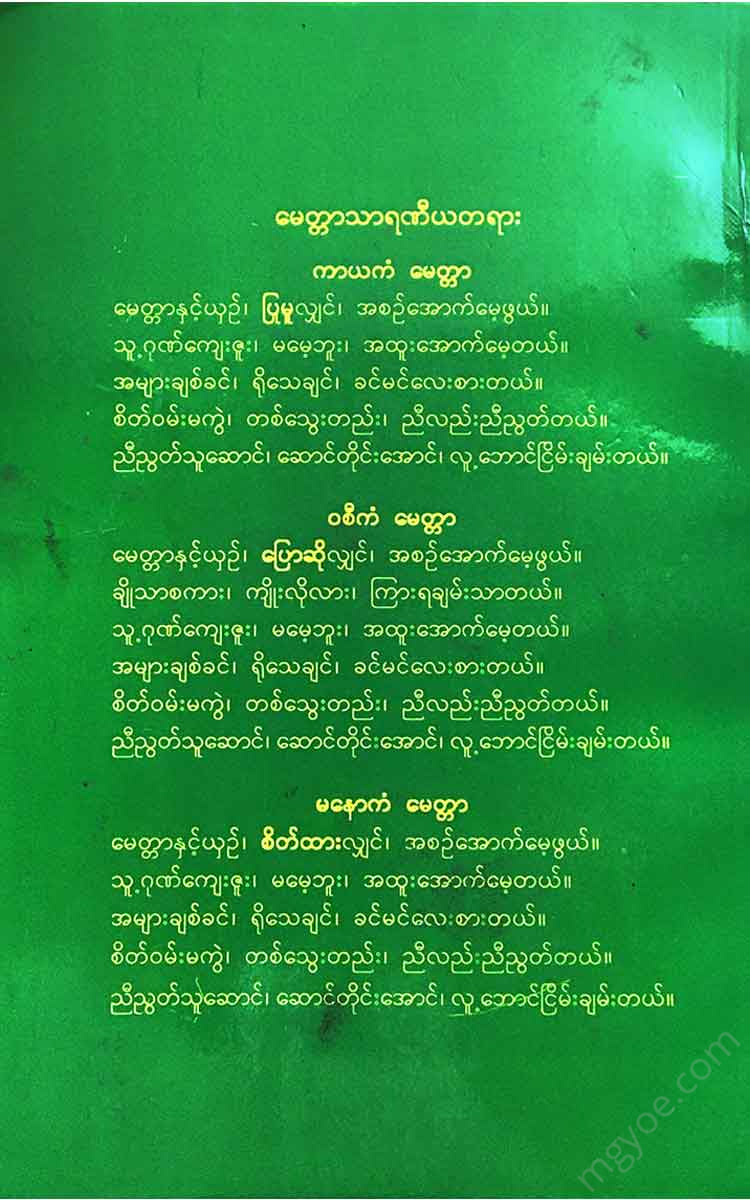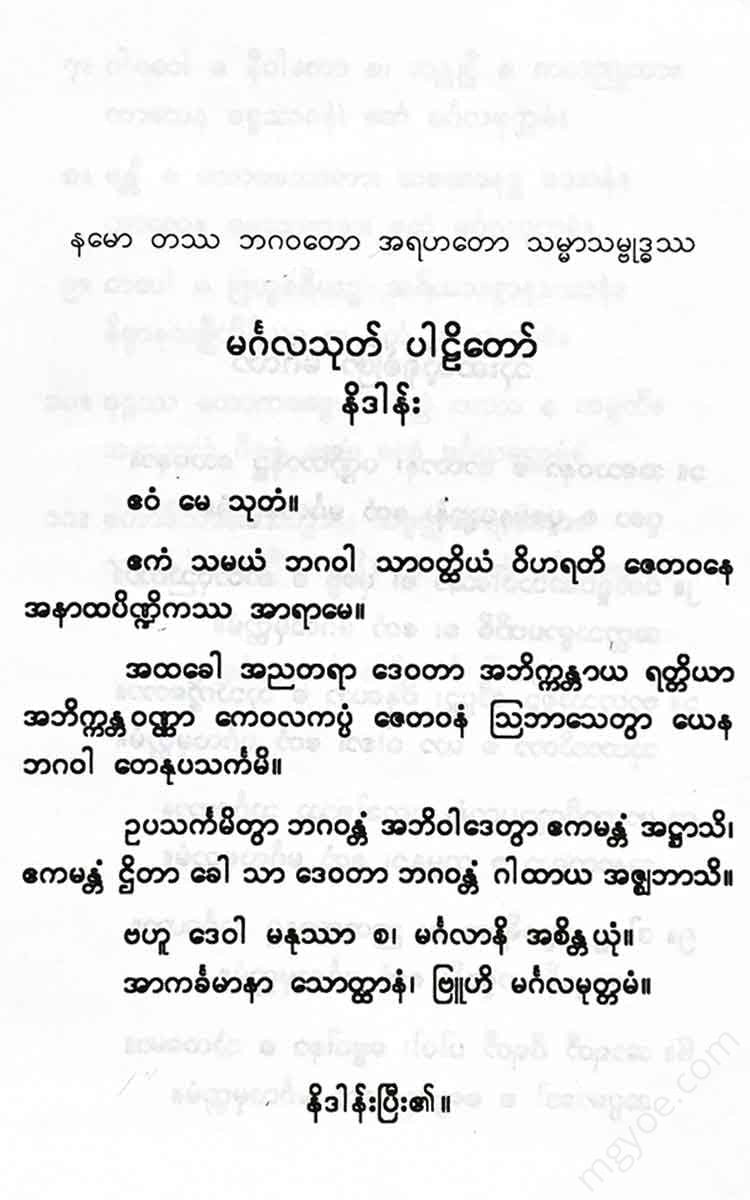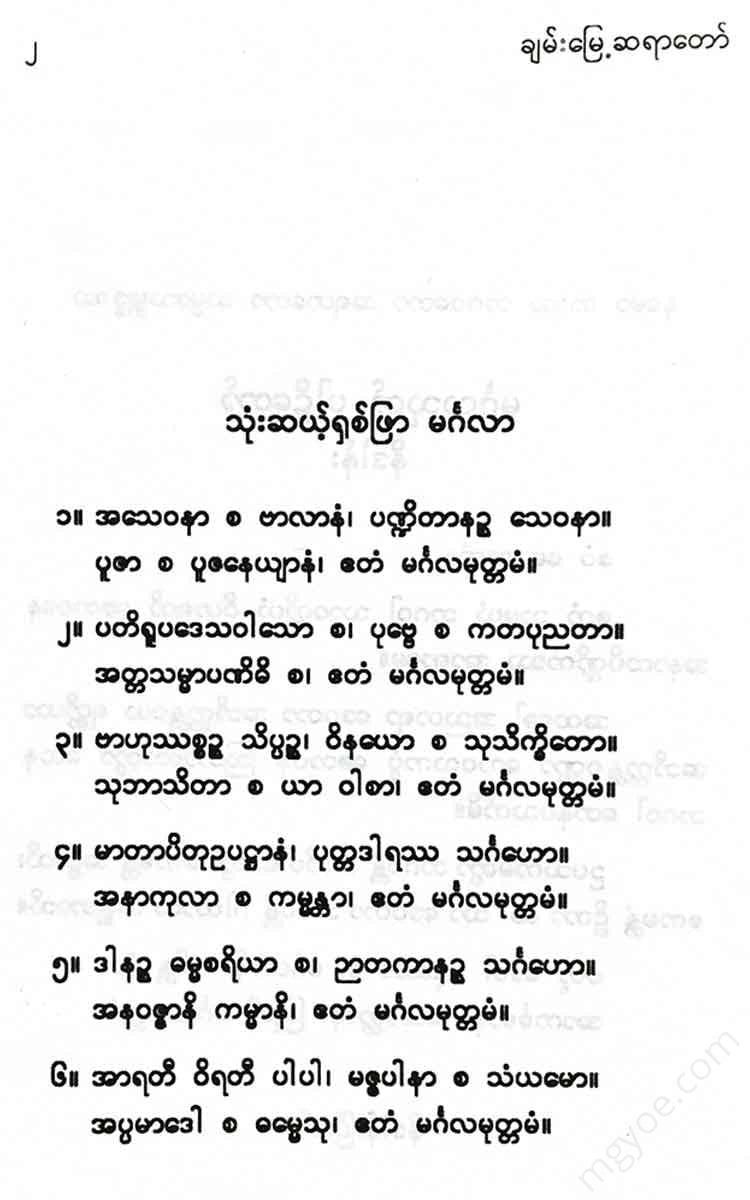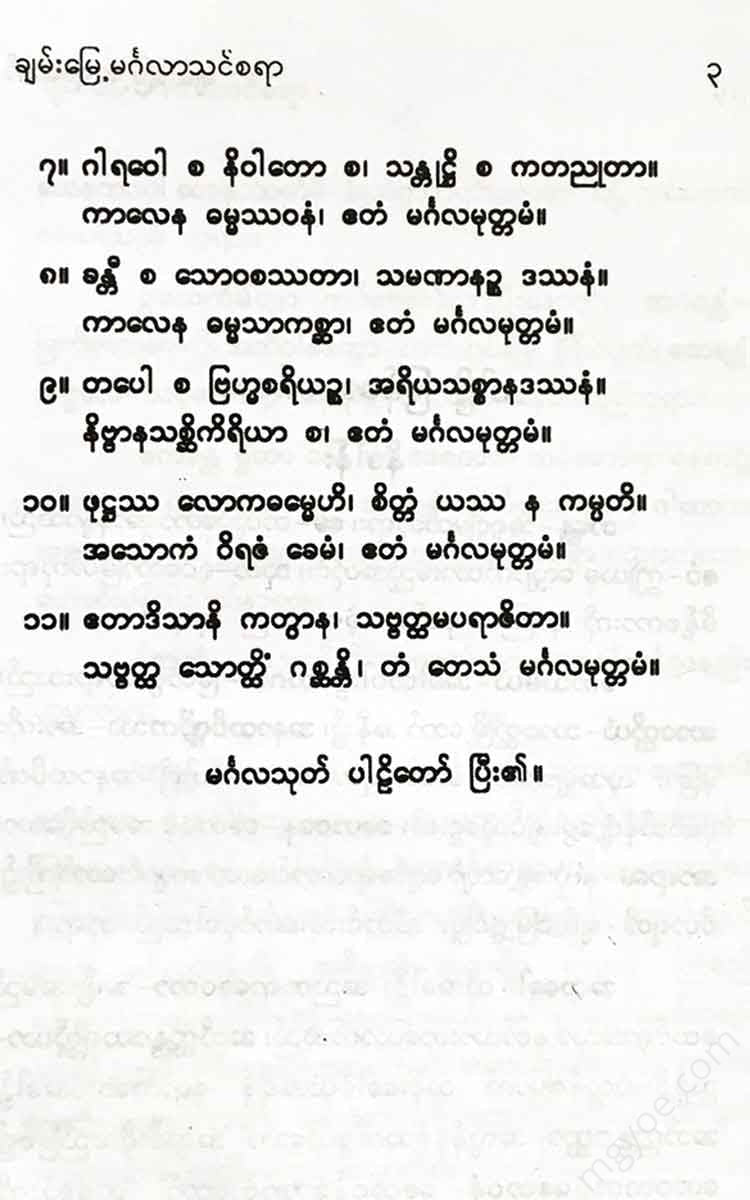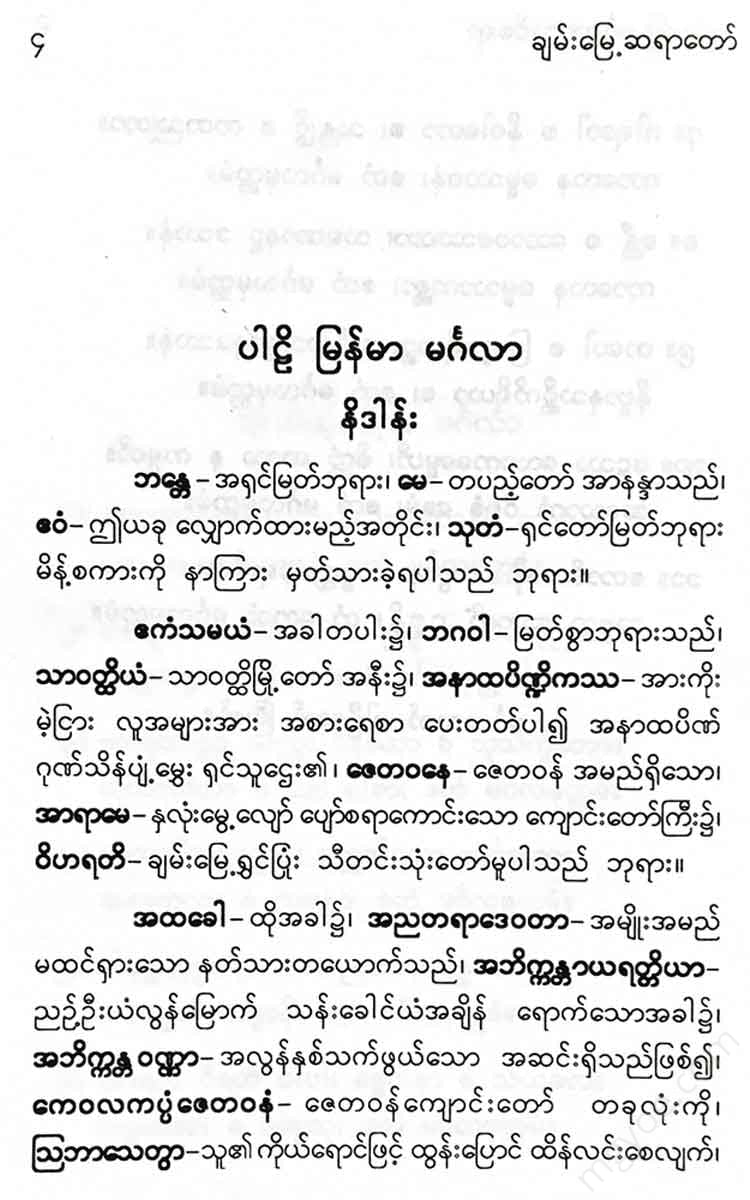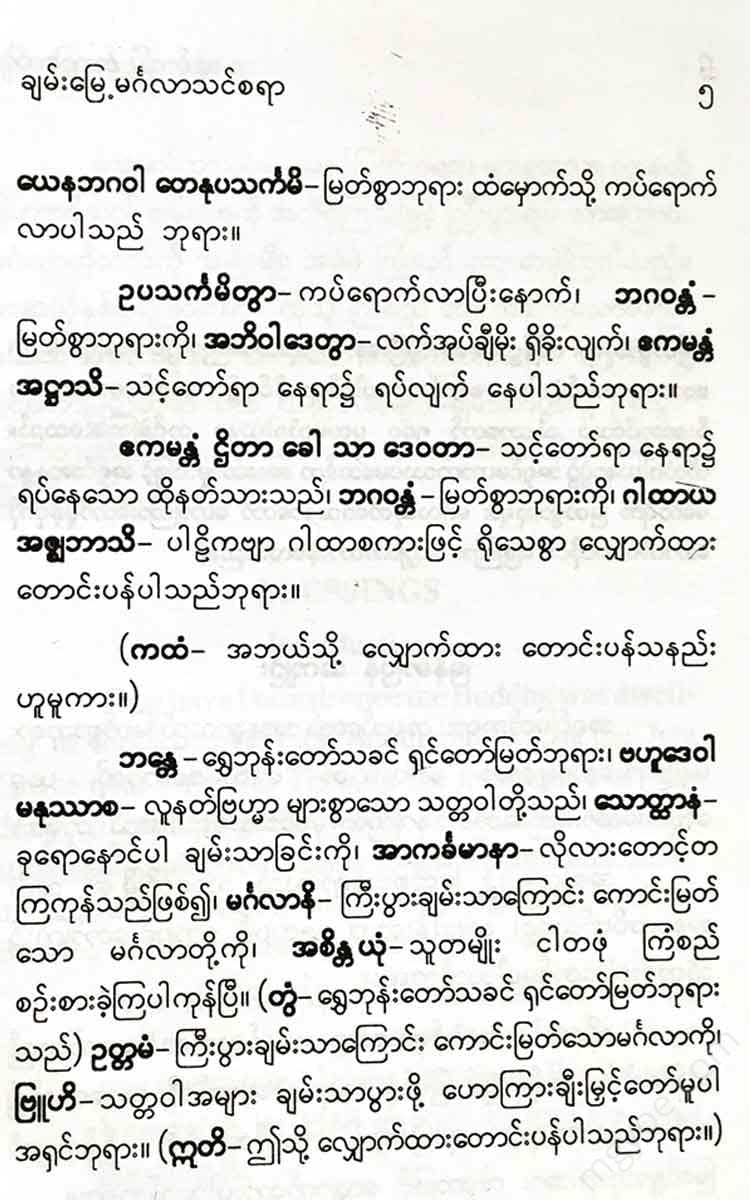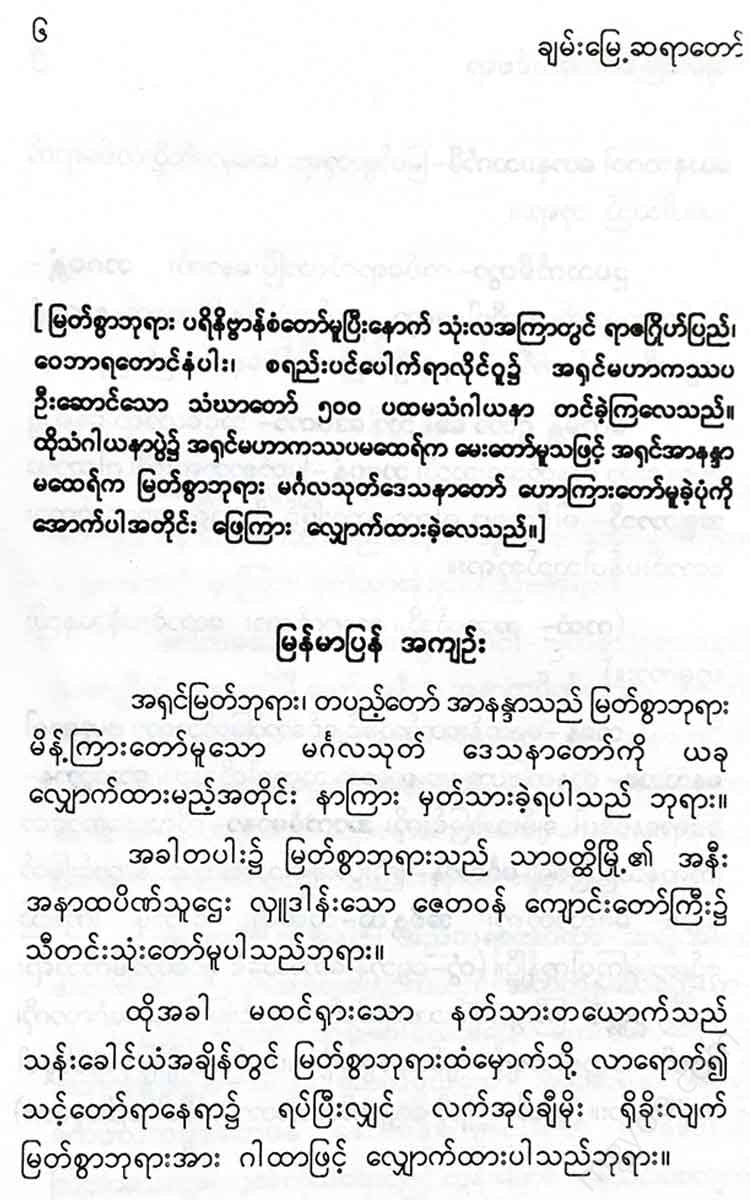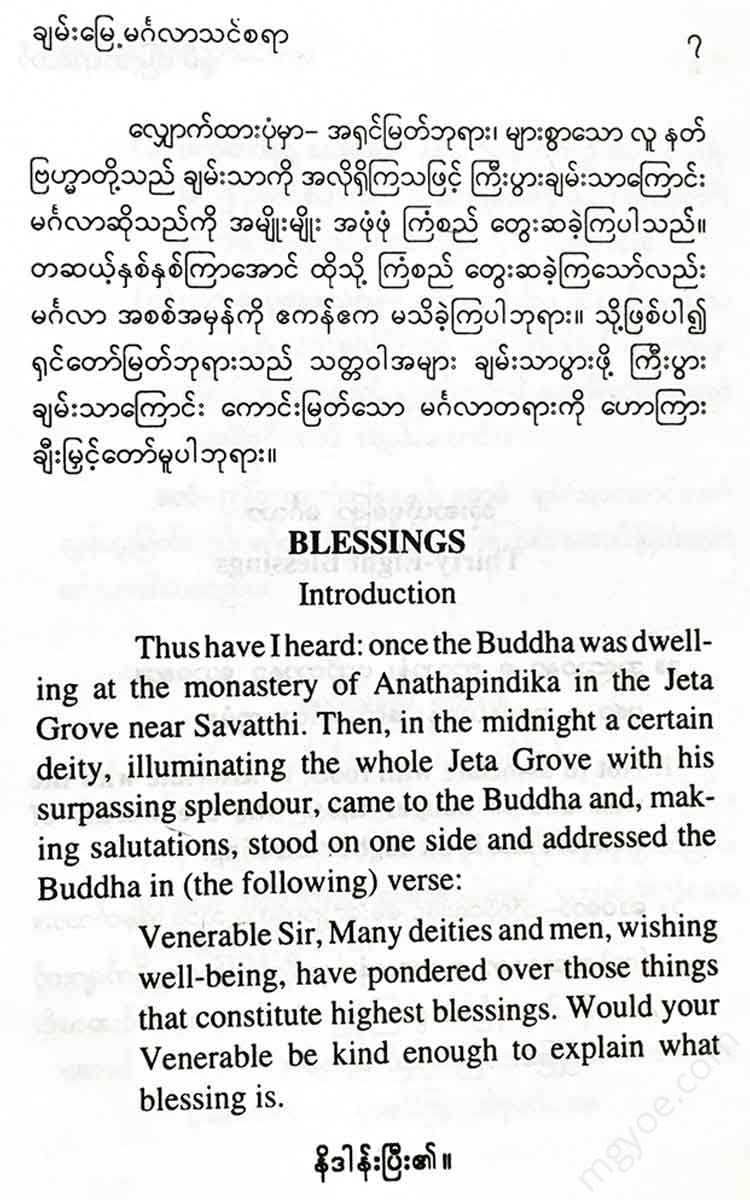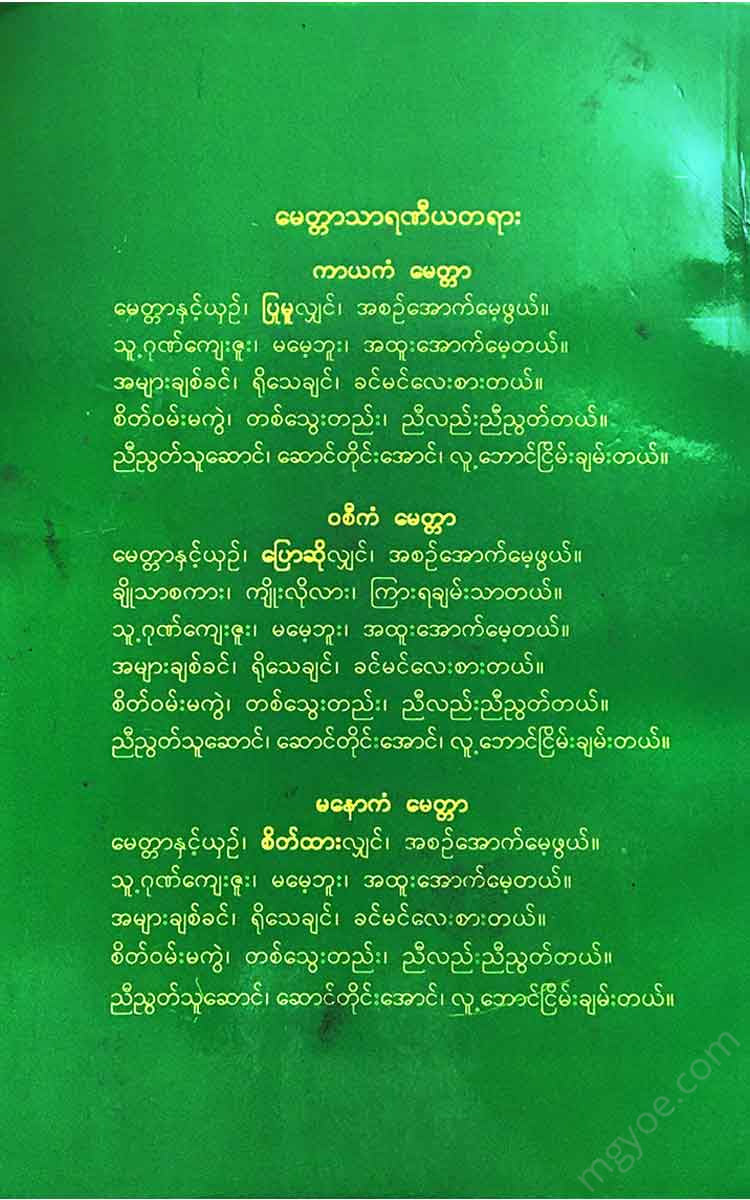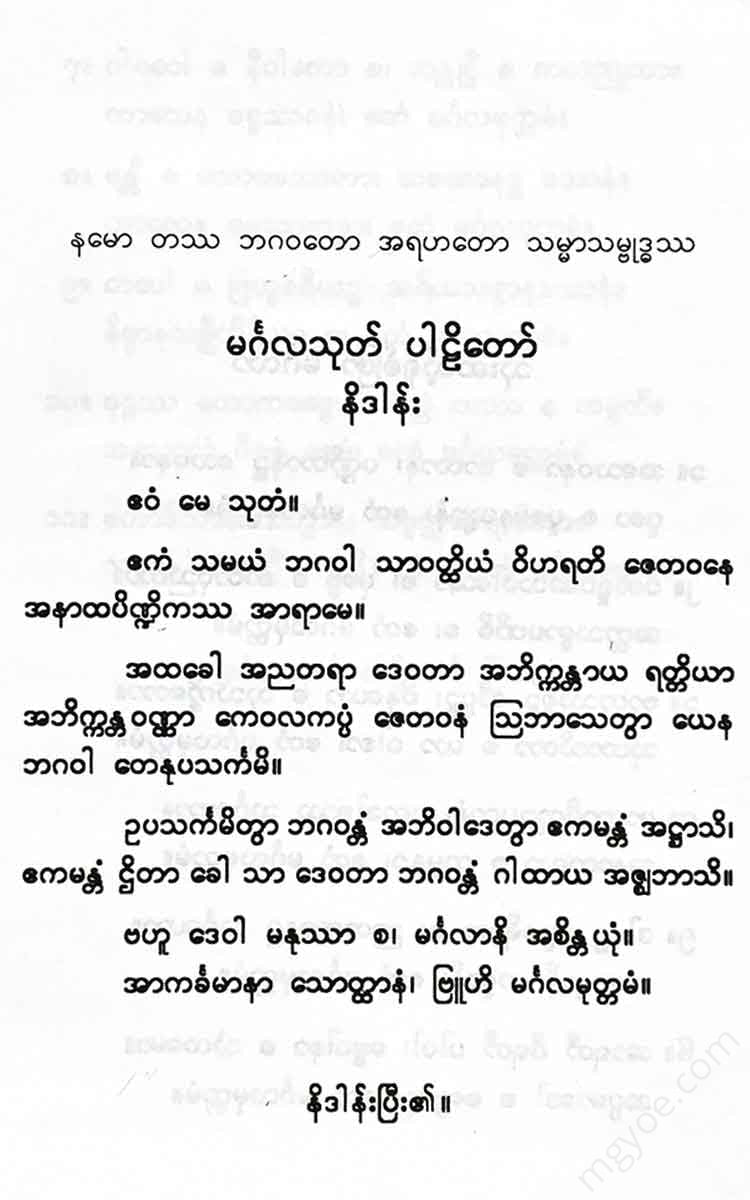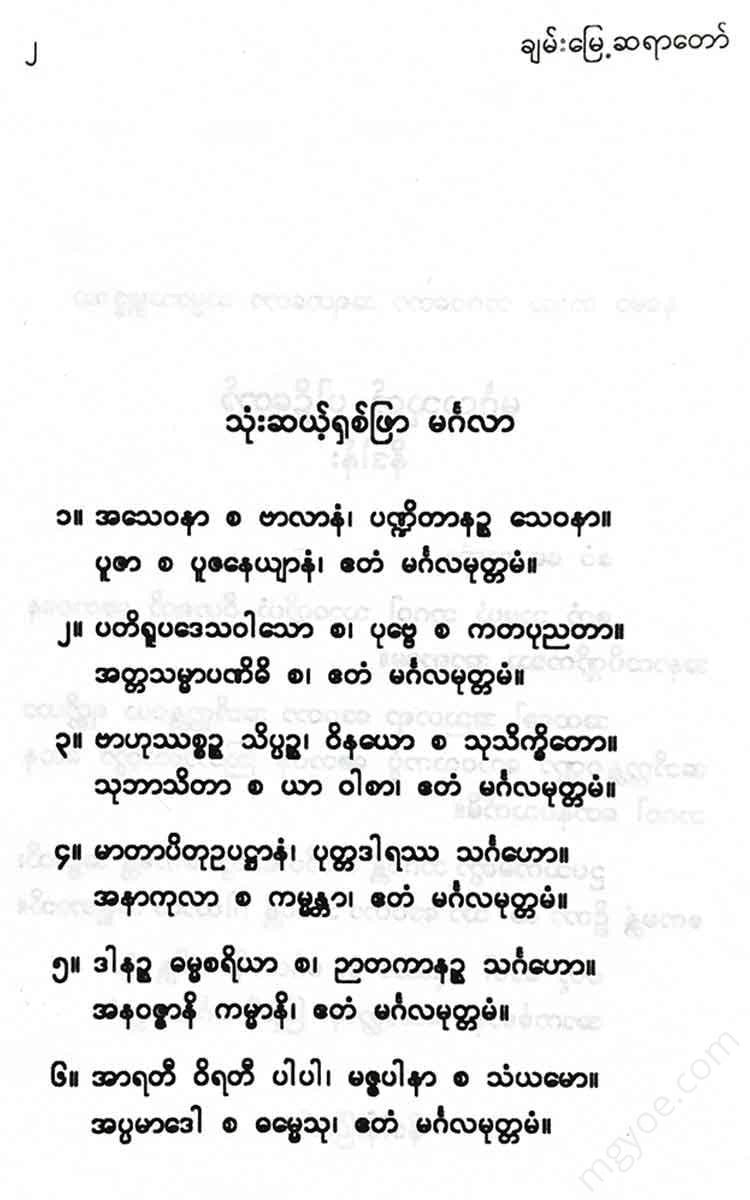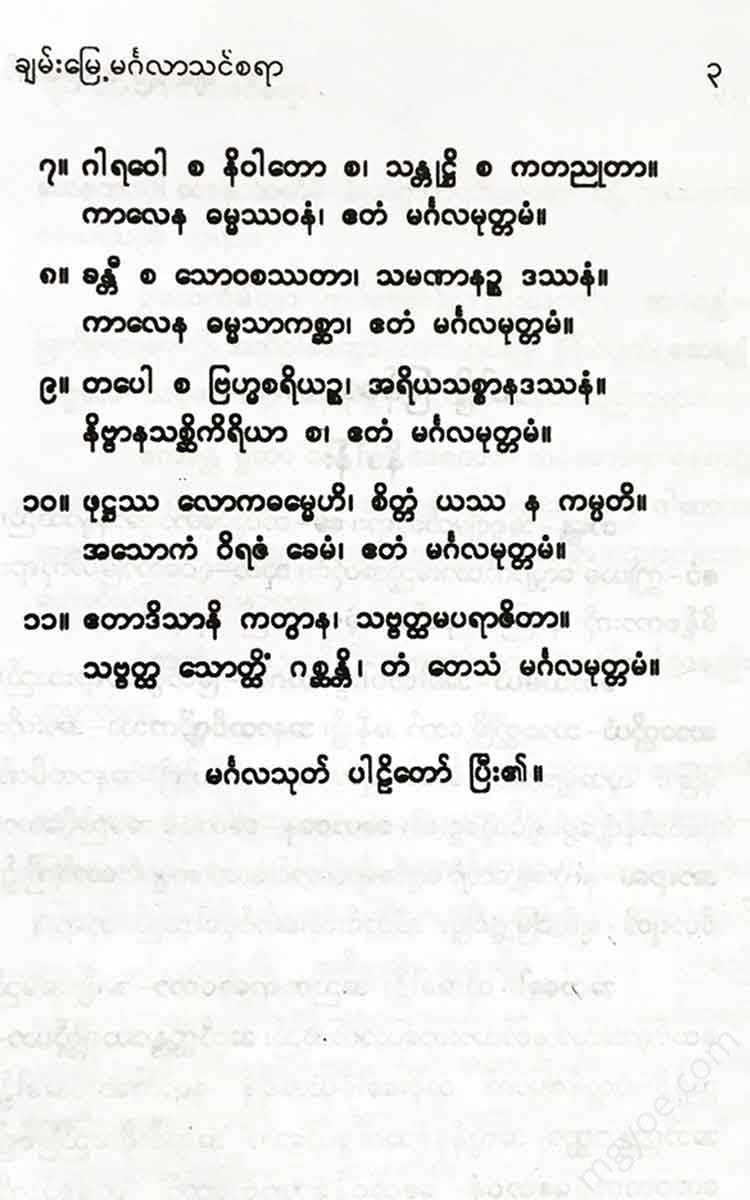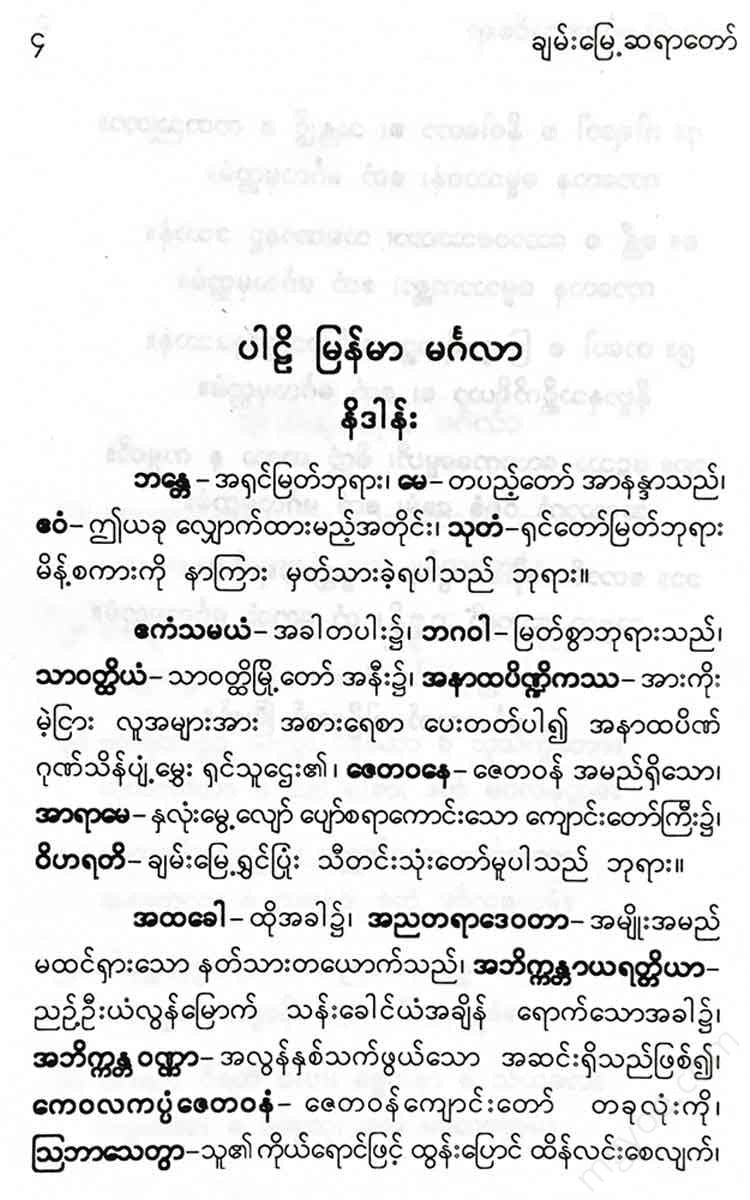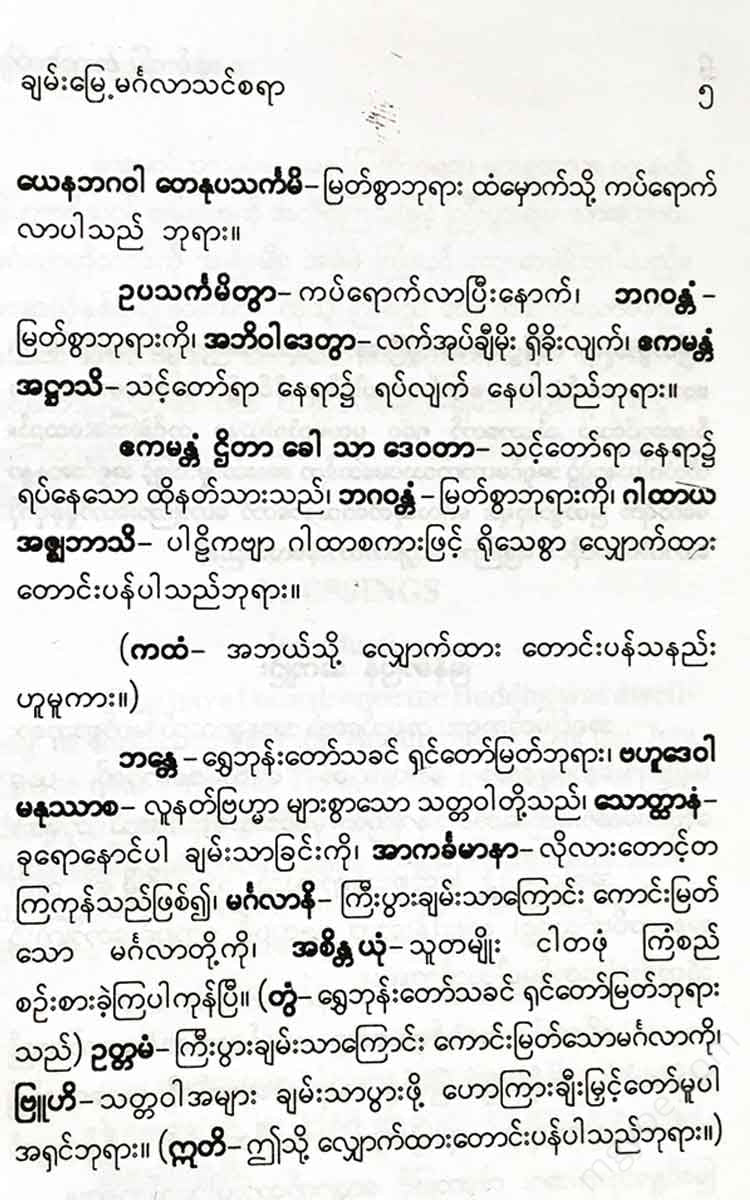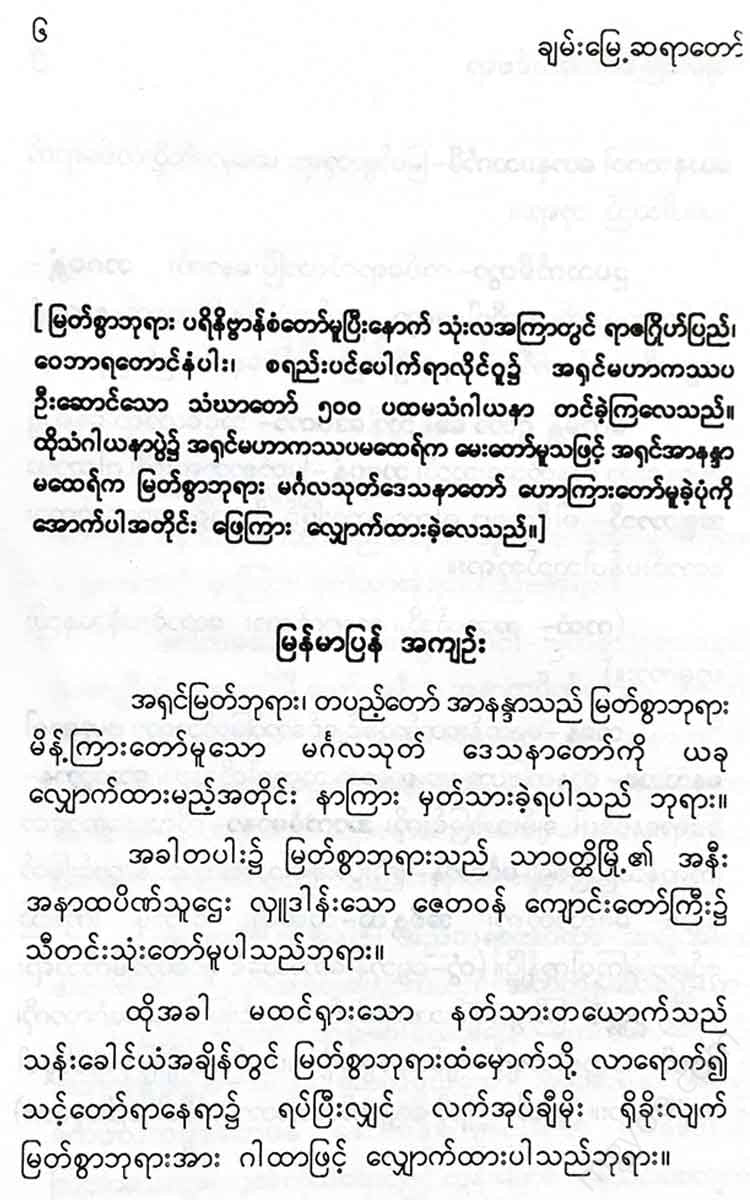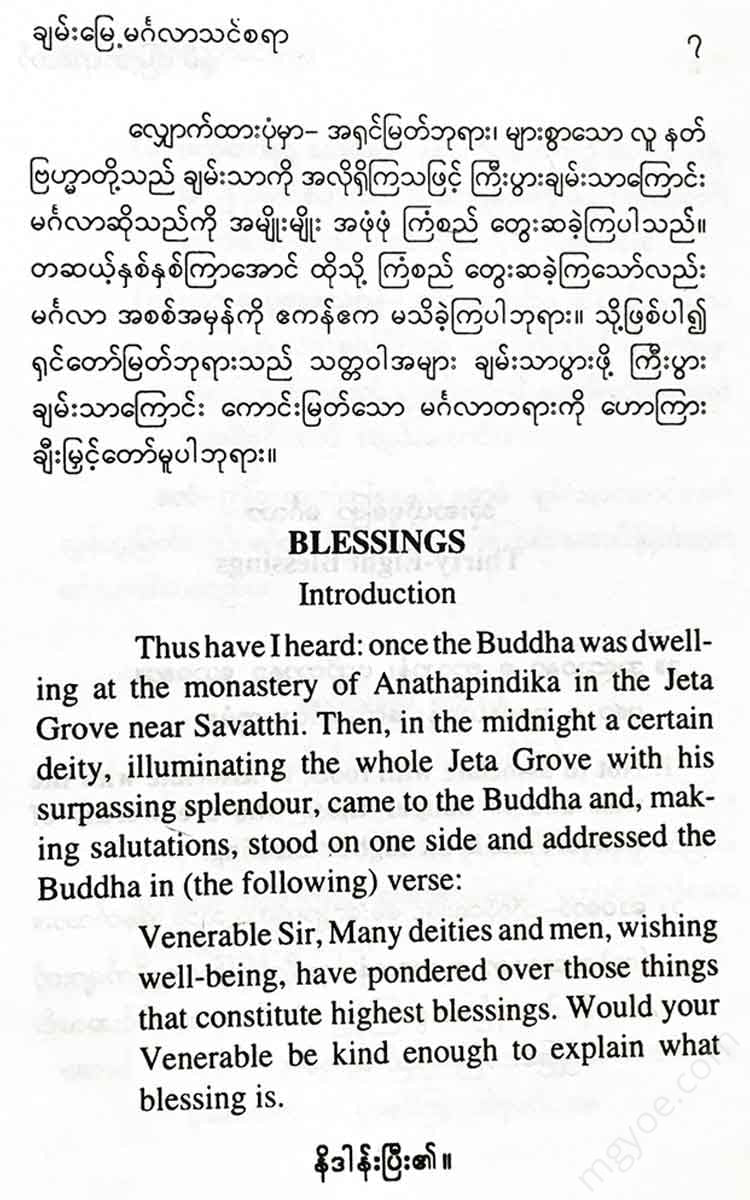Other Websites
Chan Myay Sayadaw - Chan Myay's blessed teachings
Chan Myay Sayadaw - Chan Myay's blessed teachings
Couldn't load pickup availability
1. The death of the Buddha, the death of the sage.
The name of the puja is pujaneya, the name of the ethan is mangalamuttaman.
- Not to associate with fools, to associate with the
wise and to honor those who are worthy of
honor; this is the highest blessing.
1. Devata: O divine son, who asks with a desire to know.
(a) Sthavana sa balanam - Even though they commit evil deeds, they are fools.
It is also to avoid closeness and distance, and not to engage in friendly association.
(b) Pandita Niñsa Sevana - The reason for avoiding evil deeds
Seeing and being in close association with the Blessed One, with a pure mind,
(c) Offering the three jewels of the Buddha, the teacher, the parents, the virtuous
Eta: These three qualities are: Uttama - bringing prosperity, excellent, Mangalam - bringing good fortune, prosperity.
To summarize
(1) Not associating with evildoers and fools.
(2) Associating with wise and intelligent people who avoid evil.
(3) Offering the Three Jewels to those who deserve it, such as teachers and parents.
These three are good blessings for prosperity and well-being.
Avoid fools, and always associate with scholars. If it is worthy of offering, offer it, and then you will be blessed.
Teaching aids
Death is the death of the gods, the death of the wise.
1, 2. Avoiding fools and associating with the wise is a blessing.
3 signs of a fool
(1) Devoting only to innocent thoughts - duccsintitasinni,
(2) Speaking only blameless words = dota sitabhasti,
(3) Habitually doing only sinless work = dukkataka kammakari,
These three are the signs that a person is a fool.
3 signs of a wise and good person
(1) Consciousness of thinking only innocent thoughts - Susinttita Sintam,
(2) Speaking only innocent words = Subhasitabhasthi,
(3) Doing only innocent work = Sukatakammakari,
These three are the signs that a wise person is known as a good person.
(Uparipannatha, page 208, paragraph 246)
10 vices
(1) Killing a living being. (2) Taking another's property unjustly. (3) Engaging in sensual pleasures. The three bodily sins.
(1) Lying = perjury, (2) Slander = slander, (3) Harsh and rude speech = slander, (4) Useless and useless speech = sappappalapa, the four evils of speech.
(1) The desire to obtain the property of others (abhījpa), (2) The desire to destroy others (vyāpada), (3) Believing in and worshipping false doctrines (mikṣa-dītthi), 3 mental sins. Total 10 sins.
10 virtues
(1) Refraining from taking the life of a living being, (2) Refraining from taking the property of others unjustly, (3) Refraining from engaging in wrongful conduct in sensual pleasures. The three bodily virtues.
(1) Speaking the truth = Tissavasa, (2) Speaking words that bring love and harmony between two people = Apisunavasa, (3) Speaking words that are gentle, sweet, and pleasant = Sanavasa, (4) Speaking only beneficial and wholesome words with wisdom = Mantavasa. The four virtues of speech.
(1) Not wanting to take other people's property = Anabizpha, (2) Not wanting to destroy others = Avyapada, (3) Believing in the true religion = Sammaditthi. 3 mental virtues, 10 total virtues.
Winter
Stealing, wrongdoing, these three, remember the physical karma.
Lying, rude, rude, unkind, and unkind words.
Thinking about his possessions, thinking about his loss, thinking about his loss, wrong beliefs, three kinds of mental karma.
Ten vices, to be avoided, ten good deeds.
Bad karma, bad deeds, bad luck, bad luck.
Good deeds, good deeds, and the attainment of divine Nibbana.

